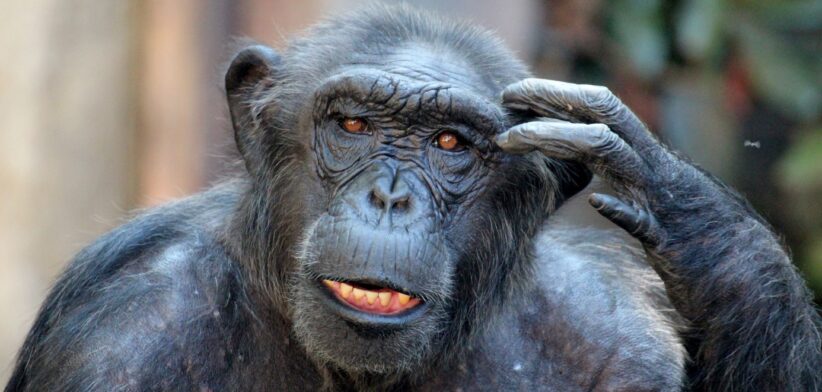A monkey randomly bashing keys on a typewriter may spell out “bananas” in its lifetime, but if they wanted to knock out some Shakespeare, as often theorised, forget it.
The often-stated Infinite Monkey Theorem says that if a monkey randomly hit the keys of a typewriter for an infinite amount of time, it would eventually type any given text, including the works of William Shakespeare.
Sydney scientists have, however, found it would take far longer than the lifespan of the universe for the typing monkey to randomly produce the Bard’s works.
University of Technology Sydney (UTS) Associate Professor Stephen Woodcock said the Infinite Monkey Theorem only considered the infinite limit, with either an infinite number of monkeys or an infinite time period of monkey labour.
“We decided to look at the probability of a given string of letters being typed by a finite number of monkeys within a finite time period consistent with estimates for the lifespan of our universe,” Associate Professor Woodcock said.
He said the researchers assumed that a keyboard contained 30 keys including all the letters of the English language, plus common punctuation marks.
Associate Professor Woodcock as well as a single monkey, the researchers also did the calculations using the current global population of around 200,000 chimpanzees and assumed a typing speed of one key every second until the end of the universe in about 10^100 years (That’s a 1 followed by 100 zeros).
He said the results revealed that it was possible for a single chimp to type the word “bananas” in its own lifetime.
“However, even with all chimps enlisted, the Bard’s entire works, with around 884,647 words, will almost certainly never be typed before the universe ends.
“It is not plausible that, even with improved typing speeds or an increase in chimpanzee populations, monkey labour will ever be a viable tool for developing non-trivial written works.”
Read the full study: A numerical evaluation of the Finite Monkeys Theorem








